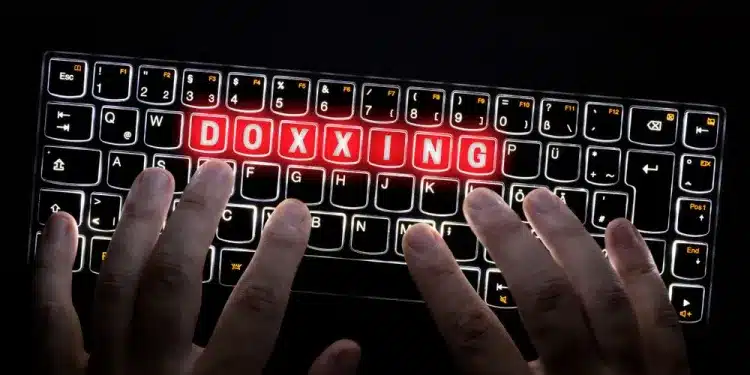The infamous cybercrime marketplace BreachForums faced an awkward scenario on June 25, 2024, when a threat actor leaked unverified information about “Aegisâ€, one of the forum moderators. The doxxing incident of BreachForums moderator was first reported by a LinkedIn user on a cybersecurity forum named “CISO2CISOâ€.
BreachForums Moderator Doxxing Details
On Tuesday, Bhavesh Mohinani, an SOC analyst and a member of “CISO2CISO,” Â shared screenshots of a BreachForums post by an anonymous threat actor that allegedly contained sensitive Personally Identifiable Information (PII) of BreachForums moderator “Aegis”.
Source: LinkedInThe threat actor claimed that he obtained “bits and pieces†information about Aegis through his friend.
“One thing I was given was a first name and an IP. Looking into it, you find out his information is very much out there! So much OPSEC, am I right,†the TA wrote in his post.
OPSEC or Operational Security, is a process that identifies seemingly innocuous actions that could inadvertently reveal critical or sensitive data to a cybercriminal.
Elaborating the details of Aegis, the threat actor claimed, “Aegis is a 17-year-old Egyptian resident living with his mother. His father seems not to have been found. Aegis started off being a skid, stealing code, claiming to be harmful and so on…he is a loser.
“Aegis will most likely deny this being his information but if this post gets taken down, you will know the truth/ love everyone! Expect this loser,†the TA wrote.
The user also shared details claiming to be the moderator’s phone number, IP address, residential address and telegram account.
Source: LinkedInWhile there is no confirmation or credibility to the claims shared by the anonymous actor, the post was deleted as soon as it was shared. However, the post has raised concerns about the security and trustworthiness of online communities.
What is Doxxing?
Doxxing, or doxing for short, is when someone puts your personal information out there on the internet. This can include information like where you work, your home address, your credit card numbers, and other private details. Usually, the intention of the threat actor is to harass the victims.
The word “doxxing” first came about in the 1990s, starting from the word “documents,” which got shortened to “docs,” and then finally became “dox.” When people talk about “dropping dox,” they mean cybercriminals revealing the true identities of their rivals, taking away their anonymity, and making them vulnerable to the authorities.
A doxxing attack begins with the threat actor gathering extensive information about their target, searching online and checking social media for clues. Social media can reveal workplace details, which can be exploited for attacks. Skilled threat actors might also trace a target’s IP address to determine their location.
The more data a threat actor collects, the more harm they can inflict. While some doxxing incidents are minor, like sending unwanted pizza deliveries, others can lead to severe consequences such as online harassment, swatting, identity theft, reputational damage, physical assault, job loss, or stalking.
The alleged doxxing of the BreachForums moderator has raised questions about whether it would lead to the arrest of another threat actor and if it signals the decline of the forums.
For example, in California, doxing is considered a serious offense, and individuals engaging in this activity could face legal consequences. Individuals arrested and charged with cyber harassment (doxing) under Penal Code §653.2 face up to one year in jail and a fine of up to $1,000.
In April 2023, Hong Kong’s privacy watchdog, Office of the Privacy Commissioner for Personal Data, arrested a 27-year-old woman on suspicion of doxxing after she allegedly posted the personal details of her friend’s ex-boyfriend on social media.
Prevention Against Doxxing
To protect users against doxxing, one must use strong, unique passwords for each account and enable Multi-Factor Authentication (MFA). Cleaning the digital footprint by removing personal information from online sites, deactivating old accounts, and adjusting privacy settings is regarded as a healthy practice. Using a VPN is recommended to hide the user’s IP address and prevent location tracking. Users must also be vigilant against phishing scams by recognizing poor spelling, mismatched email addresses, and unsolicited links. Finally, avoiding oversharing personal information online and keeping social media profiles private is a healthy digital practice to enhance security.
Media Disclaimer: This report is based on internal and external research obtained through various means. The information provided is for reference purposes only, and users bear full responsibility for their reliance on it. The Cyber Express assumes no liability for the accuracy or consequences of using this information.
Source: Read More



